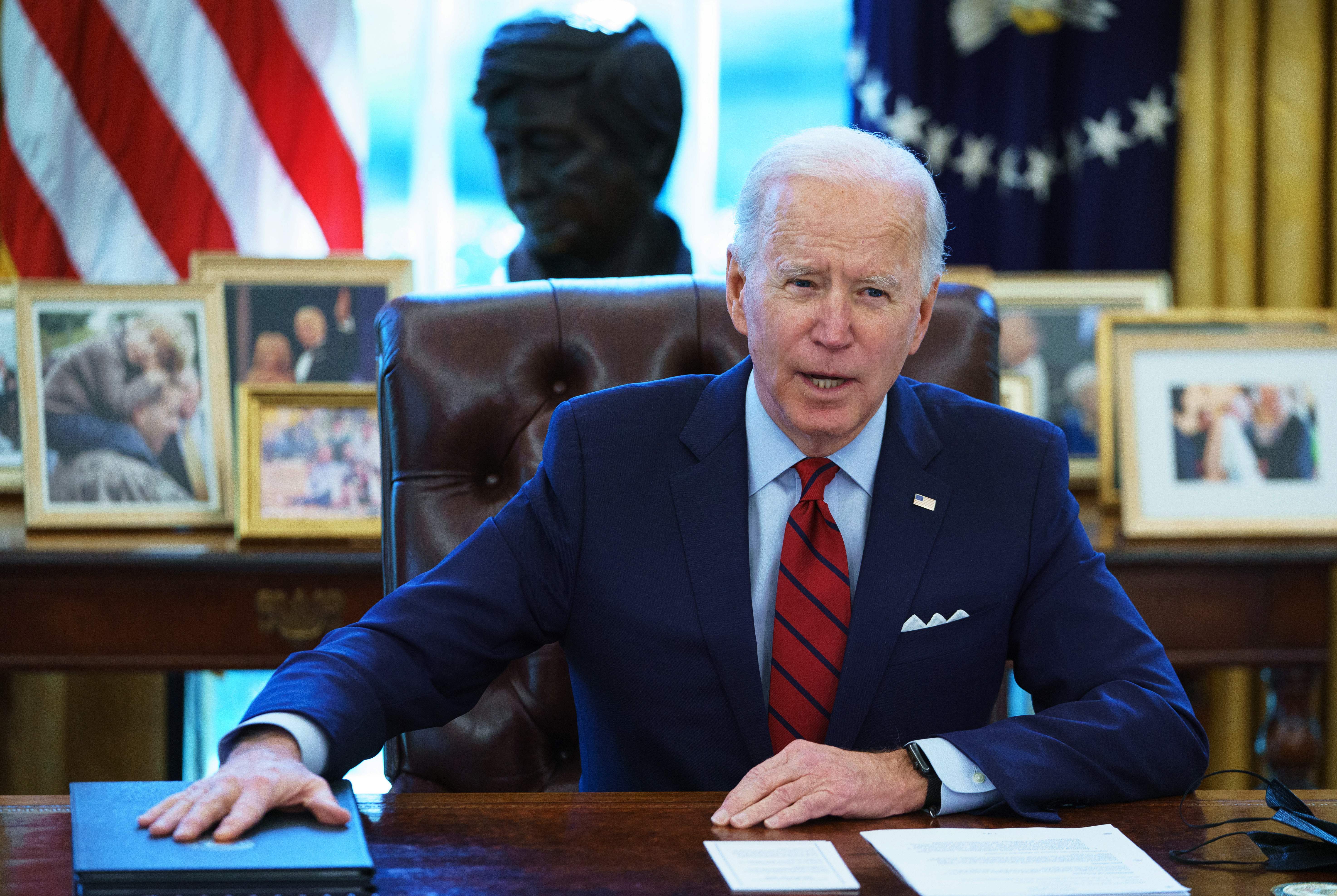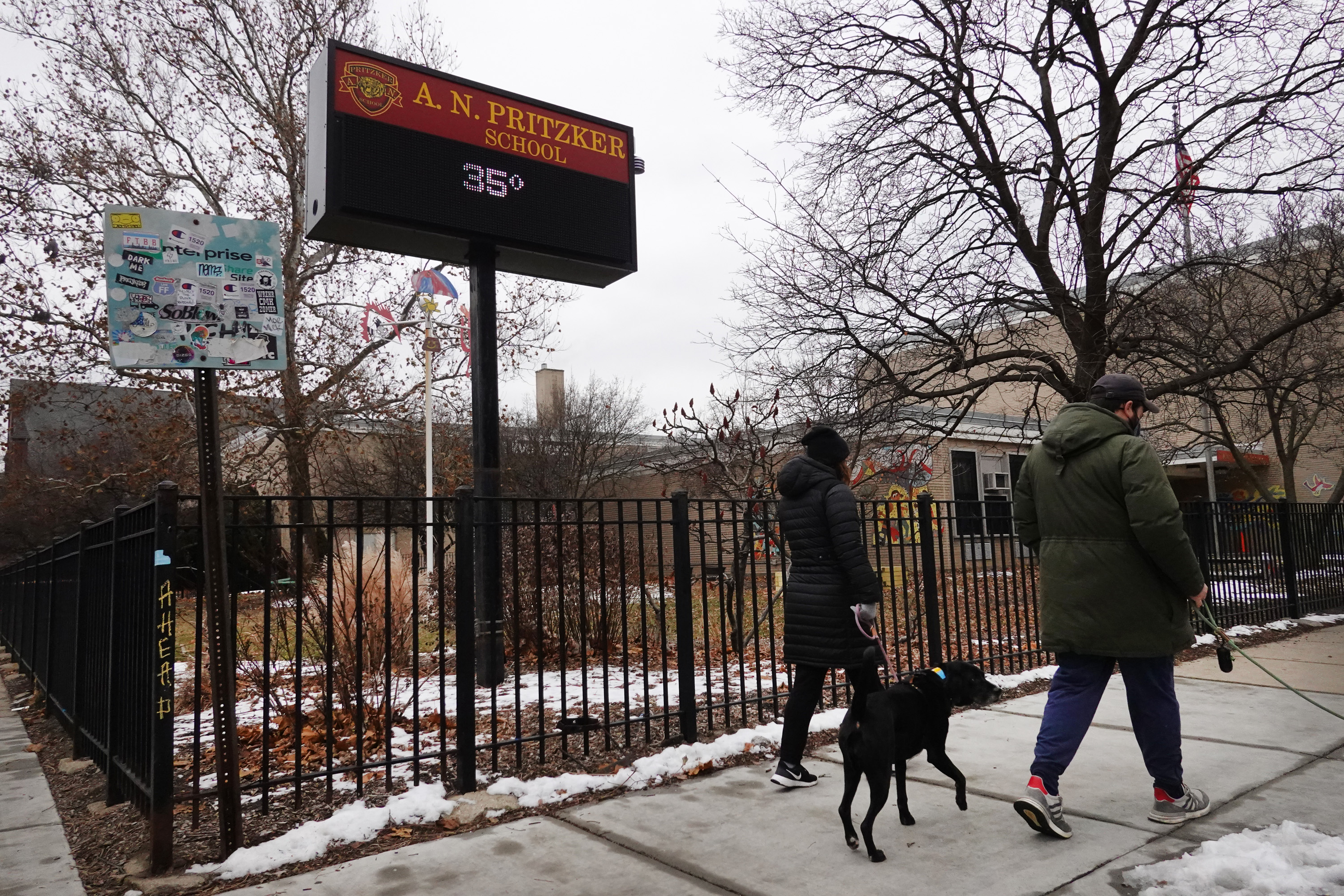With over 95,000 lives lost in 31 days, January was the deadliest month of the pandemic so far. However, in more promising news, deaths are now running at about 3,150 per day on average, down slightly by about 200 from their peak in mid-January.
Meanwhile, President Joe Biden met with a group of Republican senators on Monday to discuss another round of coronavirus relief. The two sides were unable to reach a compromise. The 10 GOP senators have proposed spending about one-third of the $1.9 trillion Biden is seeking in coronavirus aid.
The United States surpassed 26 million confirmed coronavirus cases over the weekend, according to a tally by NBC News. The U.S. has seen more than 444,000 virus-related deaths since the start of the pandemic.
Here are the latest coronavirus updates from the U.S. and elsewhere:
White House: More Vaccines to Pharmacies Next Week
The White House said the federal supply of COVID-19 vaccines to states will increase by another 5% in the coming three weeks to 10.5 million doses.
COVID-19 coordinator Jeff Zients announced the new allocation to governors and the public Tuesday, as President Biden looks to provide states certainty on upcoming deliveries.
Zients says it will be a 20% jump in weekly dose deliveries since the Biden administration took office on Jan. 20.
Starting next week, the federal government will begin distributing an additional 1 million doses per week to about 6,500 pharmacies across the country, Zients says.
Schumer Moves Ahead on Biden's $1.9T Recovery Package
Senate Majority Leader Chuck Schumer announced that senators will vote Tuesday on a first step toward approving President Joe Biden's $1.9 trillion COVID-19 recovery package.
The procedural vote would launch a lengthy budget process to pass the package with the Democratic majority if Republicans object. Biden told Republican senators late Monday he's unwilling to settle on too small a coronavirus aid package after meeting for two hours over their slimmed-down $618 billion proposal.
The Republicans are looking at fewer and smaller benefits, including $1,000 in direct payments to individuals earning up to $40,000 a year, or $80,000 for couples.
Pfizer Plans to Deliver 200 Million Vaccine Doses to US by May, Sooner Than Expected
Pfizer plans to deliver 200 million doses of its coronavirus vaccine to the U.S. by May, earlier than its initial forecast of July, according to slides published Tuesday by the drugmaker ahead of its fourth-quarter earnings call, CNBC reports.
The company, which developed its vaccine with German drugmaker BioNTech, also said it can potentially deliver 2 billion doses globally by the end of this year now that health-care providers can extract an additional sixth dose of the vaccine from the vials. In December, the Food and Drug Administration said extra doses from vials can be used after doses were being thrown away due to labeling confusion.
Pfizer has delivered 29 million doses of its two-shot vaccine to the U.S. government as of Jan. 31, according to the company. As of Monday, 17 million of those Pfizer doses have been administered, according to the Centers for Disease Control and Prevention.
Read the full story on CNBC.com
Meatpacking Firms Encouraging Workers to Get Virus Vaccine
Meatpacking companies and public health officials are trying to overcome any reluctance workers may have about coronavirus vaccines before they become eligible to get them.
Major companies such as Tyson Foods and JBS are encouraging workers to get the vaccine with campaigns to educate them about the benefits and safety of the shots. Also, JBS and Pilgrim's Corp. are offering $100 bonuses to workers who get the vaccine.
Last spring, the virus spread quickly through meatpacking plants, where workers stand shoulder-to-shoulder as they carve up meat on production lines.
But some workers, who are largely immigrants, distrust the government and some question the safety of the shots because they were developed in less than a year, said Eric Reeder, president of United Food & Commercial Workers Local 293 union.
“It’s the same thing as when we tried to get people involved in the (vaccine) trials,” Reeder told the Omaha World-Herald. “We had a hard time with the non-English-speaking population. A lot of them felt like this was a government plot to kill them."
JBS spokeswoman Nikki Richardson said the company is trying to address workers' concerns through flyers in their native languages and other efforts.
Russian Scientists Say Country's Sputnik Vaccine Appears Safe, Effective
Russian scientists say the country's Sputnik V vaccine appears safe and effective against COVID-19, according to early results of an advanced study published in a British medical journal.
The news is a boost for the shot that is increasingly being purchased by nations around the world who are desperate to stop the devastation caused by the pandemic.
Researchers say based on their trial, which involved about 20,000 people in Russia last fall, the vaccine is about 91% effective and that the shot also appeared to prevent people from becoming severely ill with COVID-19. The study was published online Tuesday in the journal, Lancet.
Scientists not linked to the research acknowledged that the speed at which the Russia vaccine was made and rolled out was criticized for “unseemly haste, corner cutting and an absence of transparency.”
“But the outcome reported here is clear,” British scientists Ian Jones and Polly Roy wrote in an accompanying commentary. “Another vaccine can now join the fight to reduce the incidence of COVID-19.”
WHO Experts Visit Animal Disease Center in Wuhan
The World Health Organization experts have visited an animal disease center in the Chinese city of Wuhan as part of their investigation into the origins of the coronavirus pandemic.
A team member says they met with staff in charge of the health of livestock in Hubei province, toured laboratories and had an “in-depth” discussion with questions and answers.
Meanwhile, WHO officials in Geneva were pushing back against suggestions the team was not getting enough access or data. The officials said the agency was continuing to ask for more data. They also said the team planned to visit the Wuhan Institute of Virology, considered among the major sources of information about the origins of the coronavirus.
Winter Storm Forces Vaccination Sites to Close in Northeast
A massive winter storm sweeping across the Northeast has forced vaccination sites from New Jersey to Maine to temporarily close.
A state of emergency imposed by New Jersey Gov. Phil Murphy remained in effect Tuesday, closing the state's six mega sites for COVID-19 vaccines as plow operators faced snow showers and blowing snow.
In Connecticut, Gov. Ned Lamont said the storm forced the postponement of about 10,000 shots and delayed the state’s weekly resupply of vaccine, now expected Tuesday. He urged providers that called off vaccination appointments to extend their hours if needed to reschedule the shots by the end of the week.
Meanwhile, the storm already disrupted the second phase of Massachusetts’ vaccine rollout as a Boston site that was supposed to open Monday for residents ages 75 and older did not; some other mass vaccination sites remained open. The state was expected to get 12 to 18 inches of heavy, wet snow and wind up to 55 mph along the coast, according to Gov. Charlie Baker.
And in Maine, MaineHealth announced all of its vaccine clinic locations will be closed on Tuesday due to weather.
Common Anti-Depressant Pill Shows Promise in Fighting COVID-19
A commonly prescribed pill – approved more than 13 years ago by the Food and Drug Administration for depression and obsessive compulsive disorder – is showing initial success in preventing people infected with COVID-19 from developing serious symptoms and being hospitalized, NBC Los Angeles reports.
The drug Fluvoxamine, sold by the brand name Luvox, appears to prevent inflammation in the lungs of people infected with COVID-19, which can be fatal.
"What we observed was that all the patients who received Fluvoxamine, none of them had a severe COVID infection that affected their lungs or their respiratory status," said Dr. Caline Mattar, an infectious disease researcher at Washington University in St. Louis who helped conduct an initial trial of the drug last fall.
Now, Washington University, along with Northwestern University, University of Minnesota, University of Washington and University of Utah, is conducting a larger trial of Fluvoxamine, giving a two-week course of the drug to patients.
Read the full story here



